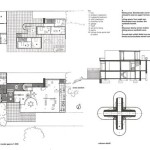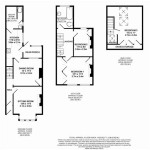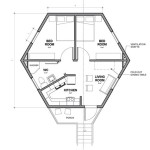How to Read Window Dimensions on House Plans
Reading window dimensions on house plans is essential for visualizing the design and functionality of your home. This guide will provide you with a step-by-step approach to understanding and interpreting window dimensions so that you can make informed decisions about your home's design.
Understanding the Basics:
Before diving into the details, it's important to understand the basic components of a window dimension:
- Width: Measured in feet and inches, this indicates the horizontal span of the window.
- Height: Measured in feet and inches, this indicates the vertical span of the window.
- Rough Opening (RO): The size of the opening in the wall that accommodates the window. It is typically 2-4 inches wider and taller than the actual window size to allow for installation and framing.
Reading Window Dimensions on House Plans:
House plans typically display window dimensions in the following format: WIDTH x HEIGHT (RO WIDTH x RO HEIGHT). Let's break this down:
- WIDTH x HEIGHT: This indicates the actual size of the window, excluding the rough opening.
- (RO WIDTH x RO HEIGHT): This indicates the size of the rough opening, which is larger than the window. The additional space is required for installation purposes.
Example:
Consider the following window dimension: 3'0" x 5'0" (3'4" x 5'4"). This means:
- The actual window is 3 feet wide (36 inches) and 5 feet high (60 inches).
- The rough opening for the window is 3 feet 4 inches wide (40 inches) and 5 feet 4 inches high (64 inches).
Additional Considerations:
Besides the basic dimensions, there are several additional factors to consider when reading window dimensions on house plans:
- Window Style: The shape and design of the window (e.g., casement, sliding, awning) may influence the overall size and functionality.
- Glazing: This refers to the type of glass used in the window, which can impact factors such as energy efficiency and UV protection.
- Exterior Trim: Some windows may require additional exterior trim or framing, which can affect the final appearance and dimensions of the window.
Conclusion:
Understanding window dimensions on house plans is crucial for planning a functional and aesthetically pleasing home. By following the steps outlined in this guide, you can accurately interpret window dimensions and make informed decisions about your home's design. Remember to consult with a qualified architect or builder if you have any questions or require professional guidance.

Help Me Read The Plan For Window Measurements

Do You Know How To Read Floor Plans

How To Read A Floor Plan With Dimensions Houseplans Blog Com

Do You Know How To Read Floor Plans

How To Read A Floor Plan With Dimensions Houseplans Blog Com

How To Read A Floor Plan With Dimensions Houseplans Blog Com Symbols Sketch Plans

How To Read A Floor Plan

How To Read Floor Plans

How To Read Blueprints

How To Read A Floor Plan With Dimensions Houseplans Blog Com








